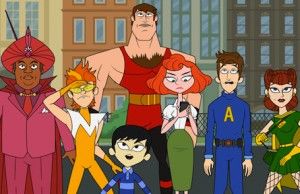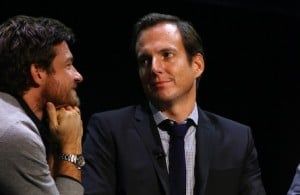Arrested Development
Hulu takes aim at Netflix, leaving Canadians sidelined
But we can’t legally access the service
Arrested Development and the tricky balance of TV revivals
Jaime Weinman weighs in
And that’s how he decided ‘Arrested Development’ wasn’t good any more
Jaime Weinman explains why it doesn’t get better as it goes along
15 short films about ‘Arrested Development’
If we want the series we remember, we’ll have to let them make that movie, says Jaime J. Weinman
Five opinionated facts about Arrested Development
Jaime J. Weinman on the lesser known details of the series
Arrested Development trailer released, the Bluths are back in two weeks
Sneak peek at the Bluths reveals a few things are clear
The Arrested Development movie may still never happen
Jaime J. Weinman on why he’s betting against it
The influence of this year’s U.S. election on U.S. television
Hint: it’s certainly more than 2008, and definitely more than 2004
Podcast: Jaime Weinman on this season’s hottest TV story
Hint: Nobody is actually watching it
The party’s over: Why the Internet might mean lower salaries for TV stars
Is Netflix opening up a new frontier with Arrested Development?
My Guest Comments On Someone Else’s List
Todd VanDerWerff was nice enough to invite me onto his podcast where he and his wife Libby listed “the top 10 comedies of the aughts.” The podcast can be found here.
Pushing Daisies = Arrested Development, or PD/AD
Watching this week’s Pushing Daisies, it occurred to me that some elements of this show’s formula are surprisingly similar to Arrested Development, even though the shows are very different in tone. Both shows have deliberately absurd, outlandish plots and over-the-top eccentric characters. Both shows have an omniscient, detatched third-person narrator who constantly tells us what the characters are thinking and what they’ve done in the past, as well as filling in large plot gaps with his calm storytelling. (And both shows were accused, with some justice, of over-using the narrator.) Both shows try to end every episode by having at least one of the characters realize that the crazy events of this week’s story have some kind of parallel to their own personal problems, and learn some kind of lesson from that. Almost every episode of Arrested Development had a moment near the end where the narrator would tell us something along the lines of: “That’s when Michael realized that what [his father/Tobias/wacky eccentric guest character] was doing was exactly the same as what he was doing to his son.” And Pushing Daisies usually has a similar moment where Ned realizes that the mistakes made by one of this week’s guest characters are the same mistakes he’s making in his own life, and the narrator informs us that Ned has learned his lesson about letting people go, learning to live with being different, etc.







